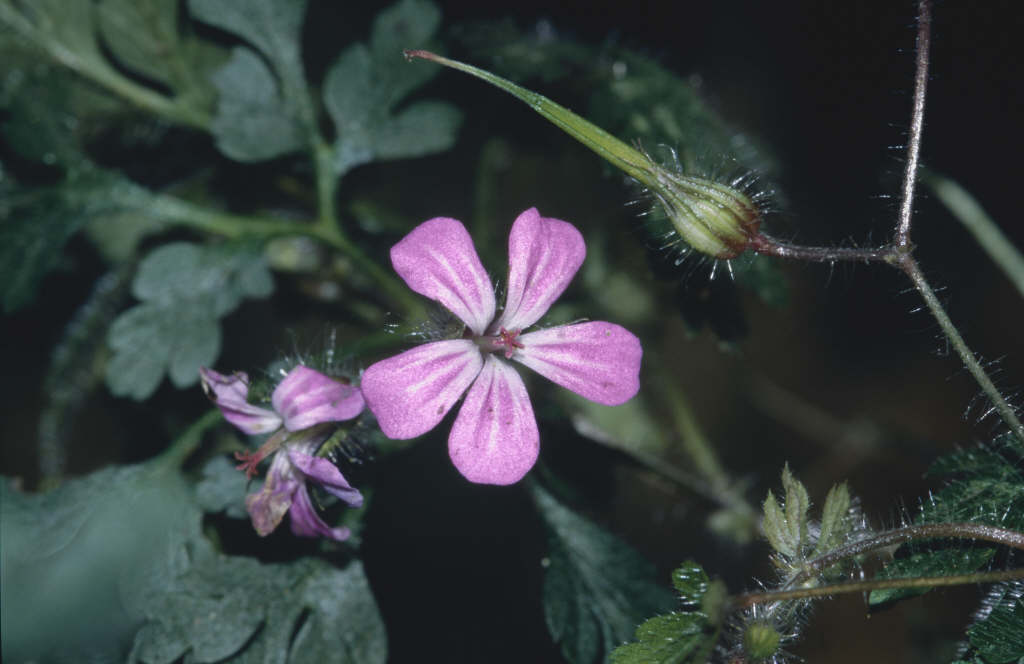Geranium robertianum
herb robert
An annual or biennial wildflower, with sprawling growth up to 40cm. Leaves are deeply dissected, aromatic and bright green with red older stems. Open sprays of pink flowers to 1cm across appear in summer and autumn. Often found in woodland, hedgerows and coastal locations and useful for ground cover in woodland or wild areas
Other common names
death-comes-quicklydragon's blood
see morefox geranium
fox grass
Jenny Wren
kiss-me-quick
knife and fork
little bachelor's buttons
little red robin
nightingales
pink bird's eye
pink pinafore
red bird's eye
red robin
redshanks
St Robert's herb
stinking Robert
wren flower
Synonyms
Geranium 'Dragon's Blood'Size
Ultimate height
0.1–0.5 metresTime to ultimate height
1–2 yearsUltimate spread
0.1–0.5 metresGrowing conditions
Moisture
Moist but well–drained, Well–drainedpH
Acid, Alkaline, NeutralColour & scent
| Stem | Flower | Foliage | Fruit | |
| Spring | Green | |||
|---|---|---|---|---|
| Summer | Pink | Green | ||
| Autumn | Pink | Green | ||
| Winter |
Position
- Full sun
- Partial shade
Aspect
South–facing or North–facing or East–facing or West–facing
Exposure
Exposed or Sheltered Hardiness
H6Botanical details
- Family
- Geraniaceae
- Native to GB / Ireland
- Yes
- Foliage
- Deciduous
- Habit
- Bushy
- Genus
Geranium can be annuals, biennials and perennials, herbaceous or evergreen, with rounded, usually palmately lobed or divided leaves, and lax inflorescences of rounded, 5-petalled flowers
- Name status
Correct
- Plant range
- Temp. N. Hemisphere
How to grow
Cultivation
Thrives in sun or shade in any soil. It can be found in woodland, hedgerows and coastal locations and is useful for ground cover in shaded areas. Self-seeds happily, but any unwanted young plants are easy to remove. See herb robert for further information.
Propagation
Propagate by seed
Suggested planting locations and garden types
- Wildlife gardens
- Wildflower meadow
Pruning
No pruning required
Pests
Generally pest-free
Diseases
Generally disease-free, but may be susceptible to powdery mildews in dry conditions
Get involved
The Royal Horticultural Society is the UK’s leading gardening charity. We aim to enrich everyone’s life through plants, and make the UK a greener and more beautiful place.
